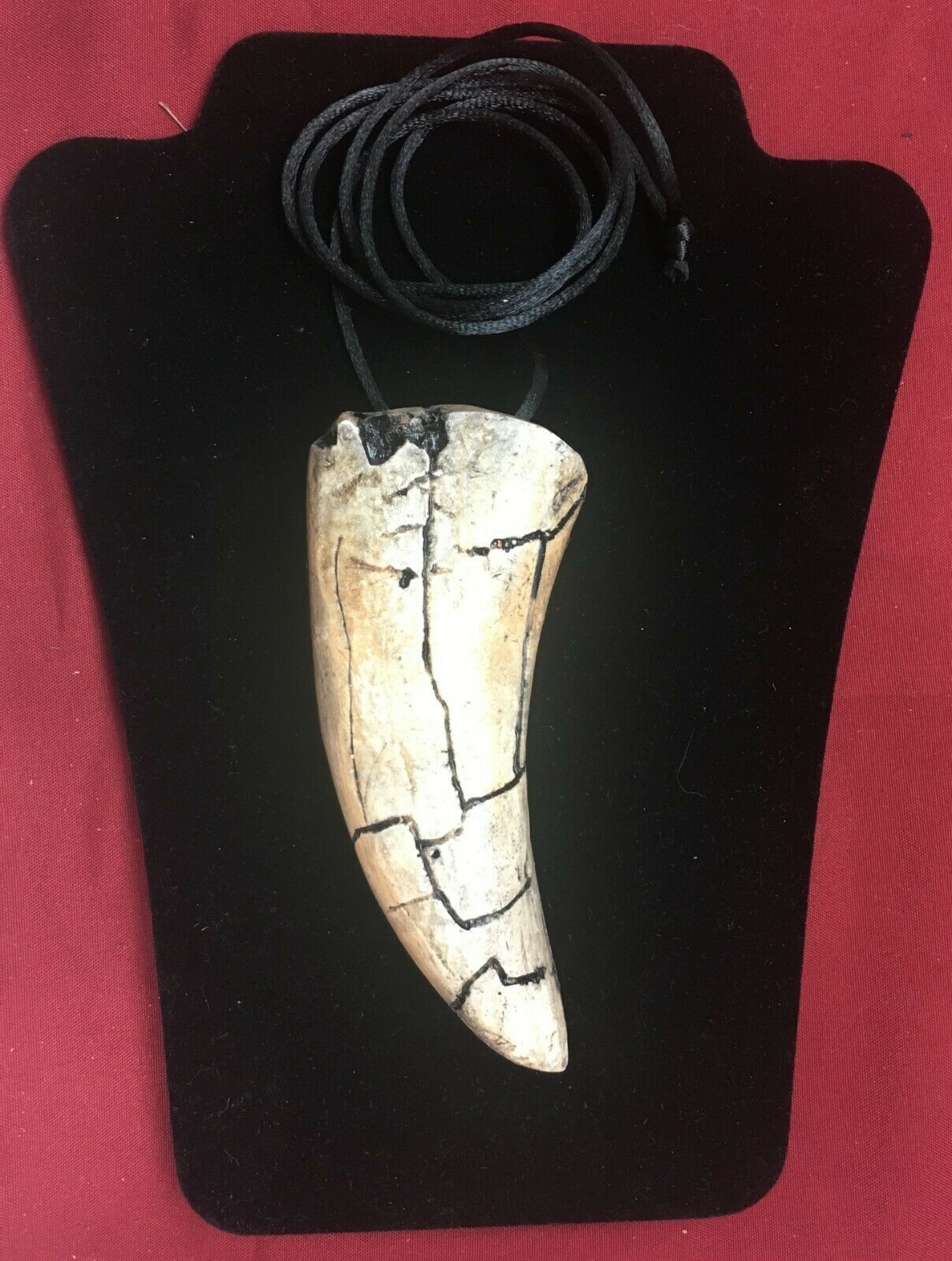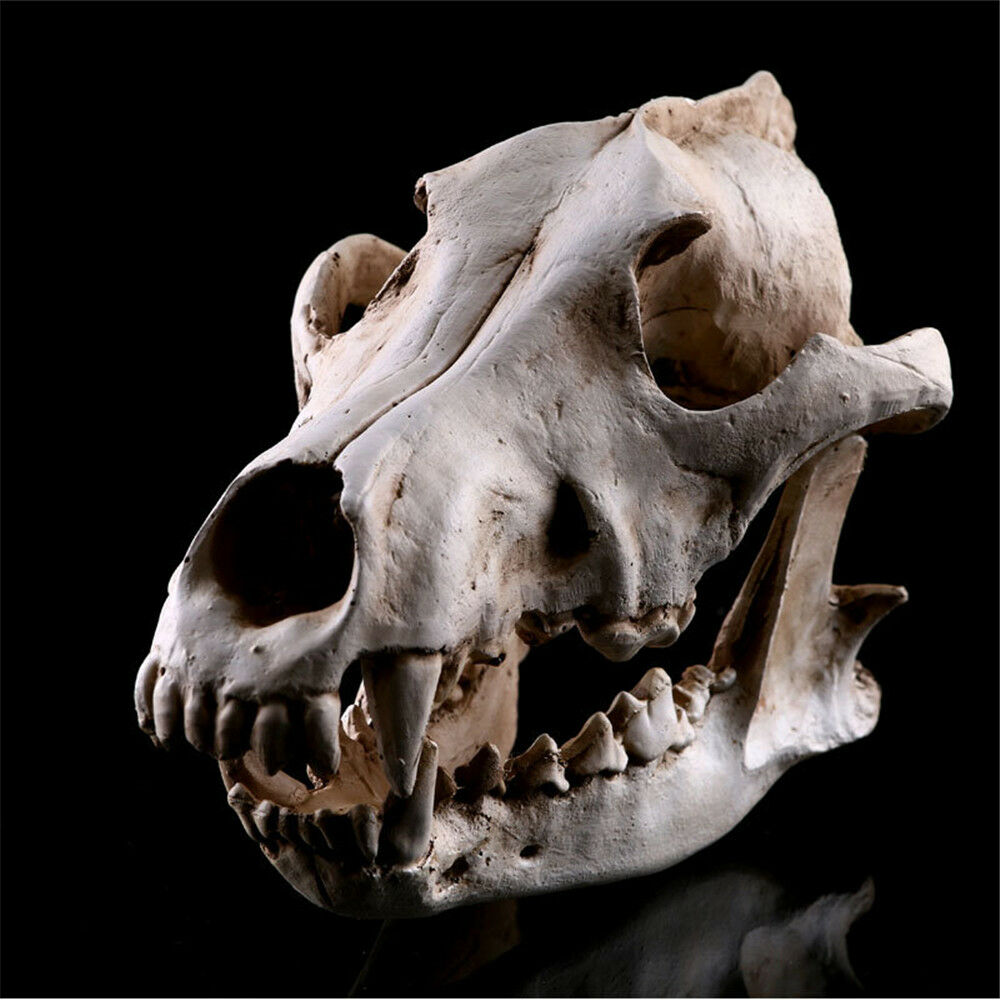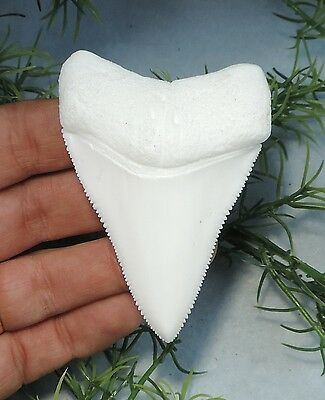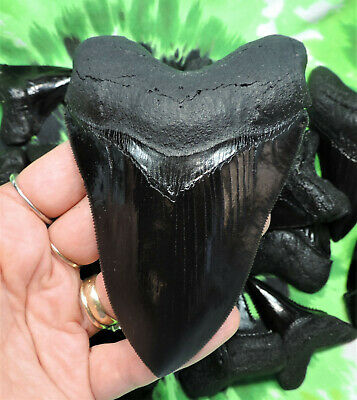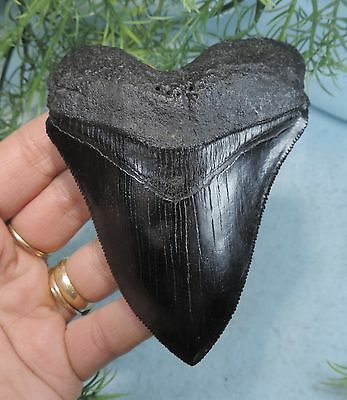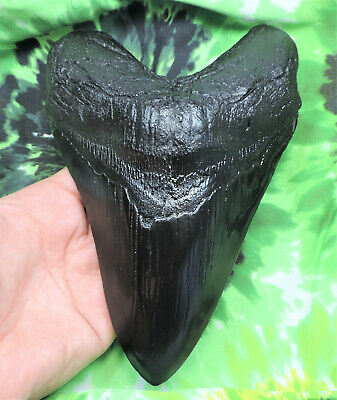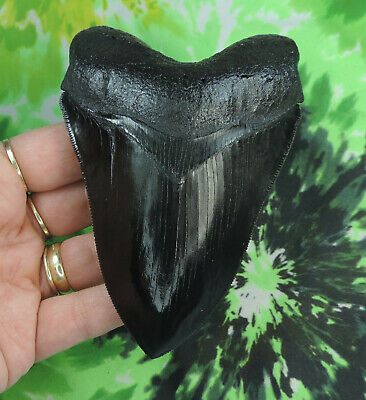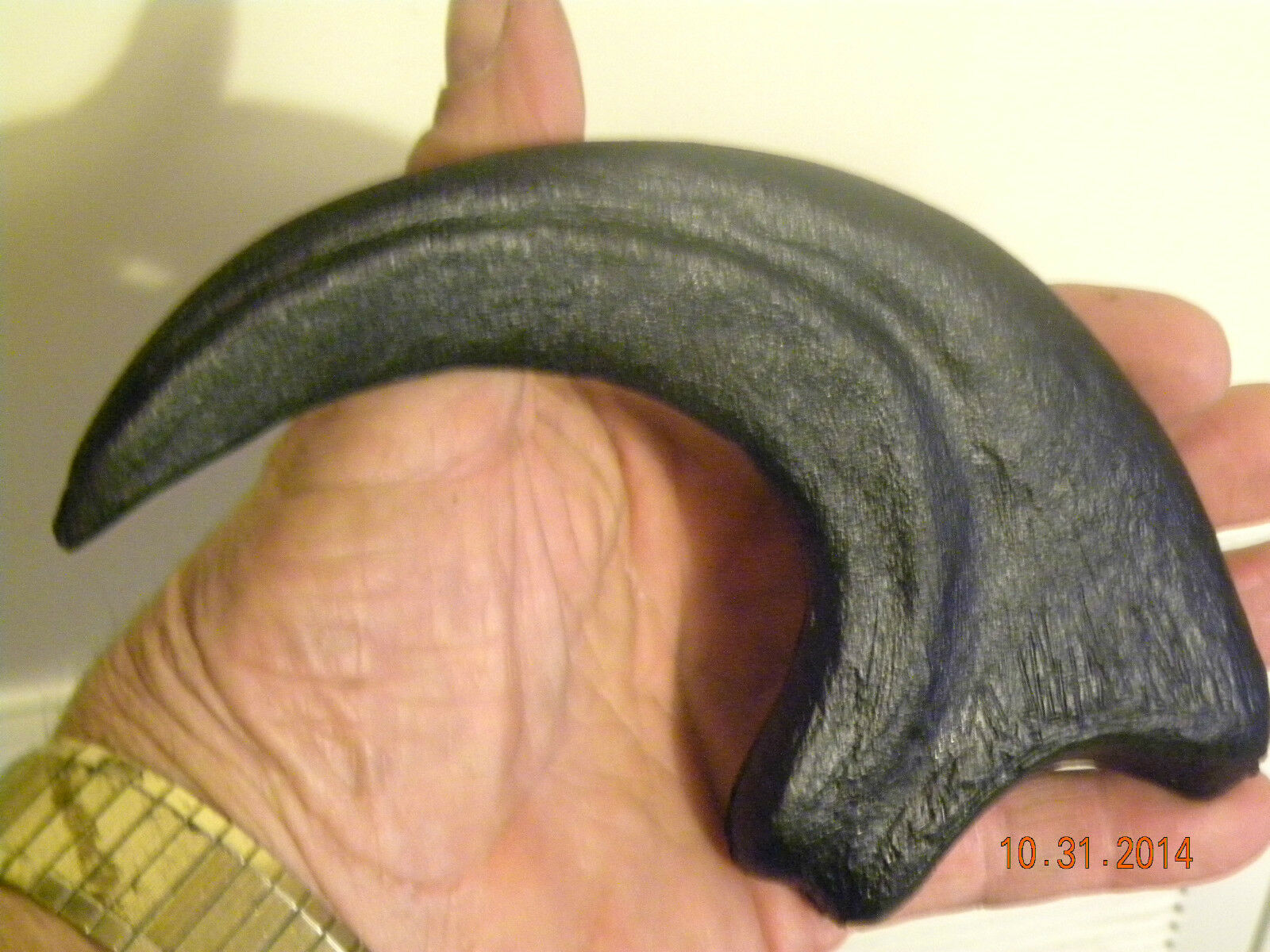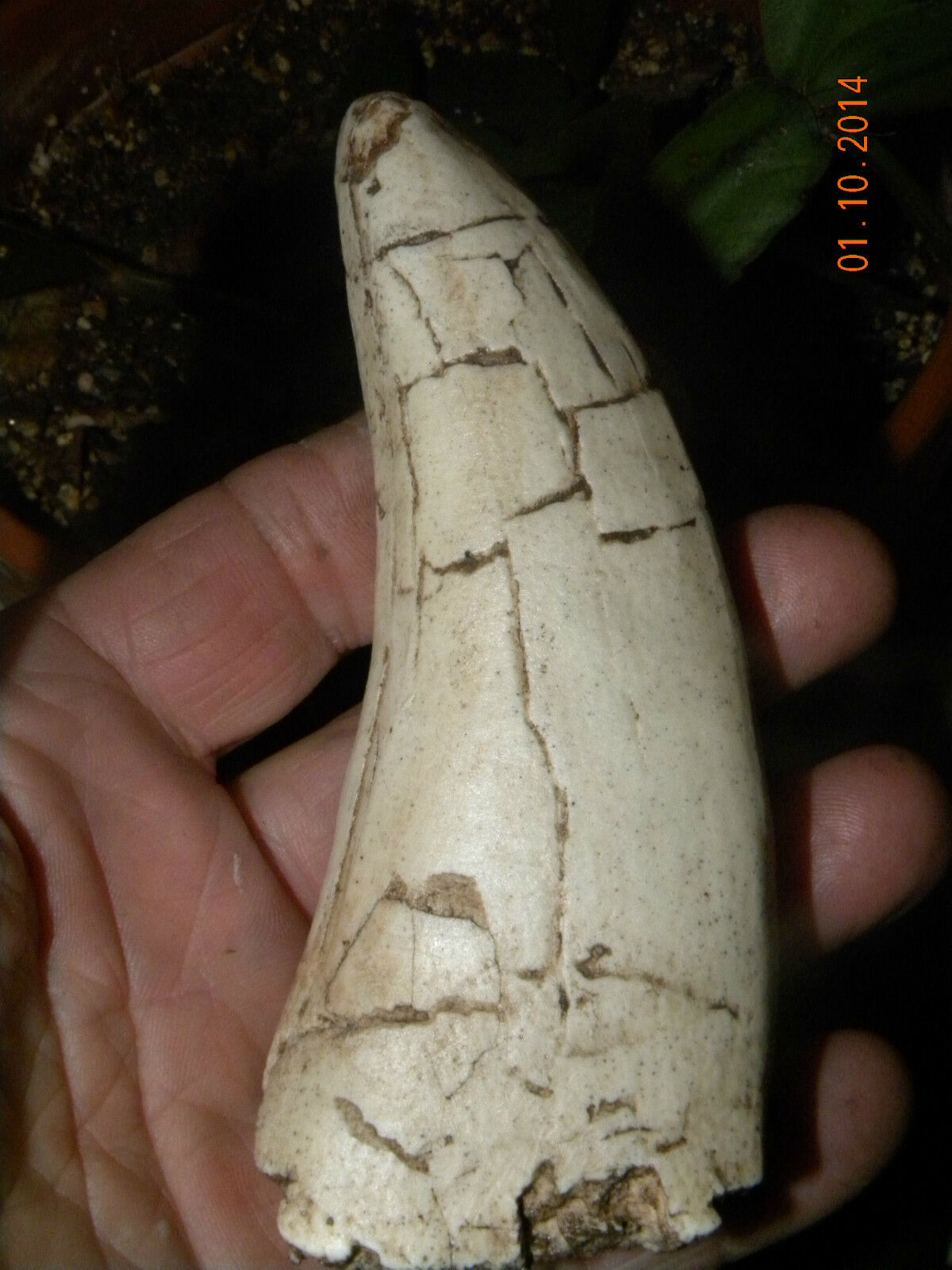-40%
5.5 Inch Tyrannosaurus rex Dinosaur Tooth Necklace Pendant (replica (3720)
$ 7.84
- Description
- Size Guide
Description
5.5 Inch Tyrannosaurus rex ToothNecklace Pendant on Soft Cord
(replica 3720)
cast in solid resin
Between 68 and 66 million years ago, a hulking
Tyrannosaurus rex
chomped into a fresh carcass. As the giant meat-eater's teeth ripped flesh from bone, this large tooth broke loose and fell to the ground to be fossilized and then cast millions of years later.
Tyrannosaurus rex
commonly lost teeth like this one in a process we call "shedding." These teeth are usually found apart from skeletons, often near a plant eating dinosaur carcass that served as a feast for the giant Cretaceous predator.
Yes, T-rex teeth were big and strong but they did break them while feeding and crushing the bones of other dinosaurs. These broken teeth are called shed teeth. Fortunately, when a tooth was broken or shed it was slowly replaced by another tooth growing out of the jaw. Its teeth were also serrated just like a steak knife or shark tooth. T-rex had a variety of sizes of teeth, from only 1 inch above the gum line to 15 inches including the root. T-rex was up to 12 feet tall at the hip, 40 feet long, & weighed up to 11 tons. Most specimens have been found in the western United States and Canada. They were the dominant predator of the upper Cretaceous Age 68-66 million years ago. Authentic T-rex teeth can sell for over 00 per inch.
THE IMPORTANCE OF FOSSIL REPLICAS By definition authentic fossils are unique one of a kind occurrences. No two fossils are identical. In fact many fossils are the one and only known specimen of a particular genus or species. With only one specimen available for study how do paleontologist around the world study such rare and often very fragile specimens? One answer to that question is through replicas cast directly from the original fossil. This way many exact copies can be made and distributed for research and museum display all over the world. Thus fossils replicas are an important scientific tool. In some cases a replica of a fossil lost or destroyed may be the only remaining evidence of the original fossil. Replicas allow direct study of otherwise unattainable specimens. Replicas allow the public to see, enjoy and learn about specimens that otherwise might be locked away in some storage cabinet or vault. For example, there is only one original Archaeopteryx specimen known as the Berlin specimen and that original is kept in a vault in Germany. However, nearly every museum in the world displays a replica of this important fossil. Another example is the Tyrannosaurus rex known as “Sue” the most complete specimen ever found. There is only one original but replicas are in museums all over the world. The importance of replicas in paleontology and education cannot be overstated.
Quality Fossil Replicas Since 1999. Prehistoric Planet, Prehistoric Store, PaleoClones
